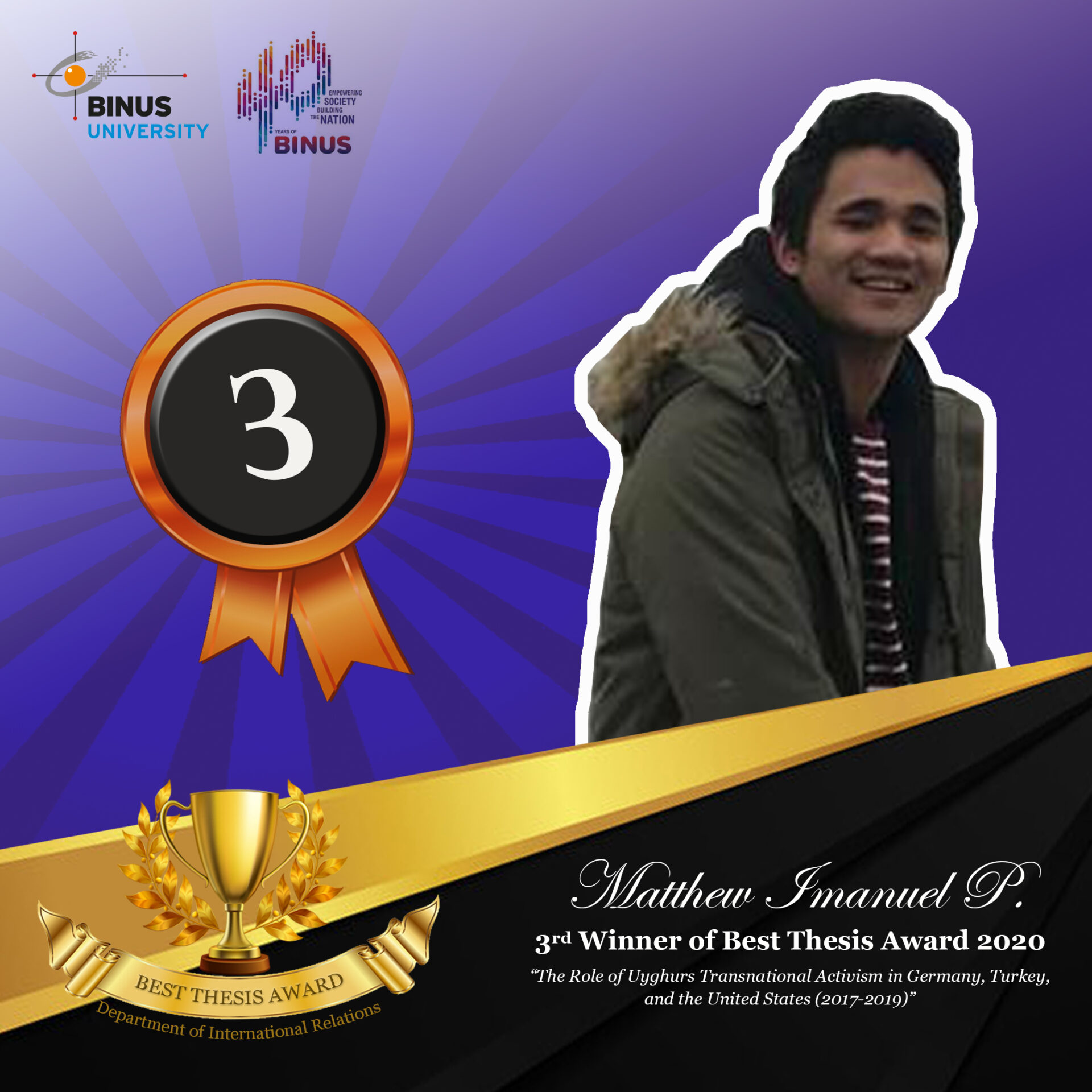WINNERS ANNOUNCEMENT: BEST THESIS AWARD 2020
We selected some of the best ones among so many good papers written in this semester (Odd 2020/2021). The Winners are selected through a review process by our faculties which is based on some key academic writing criteria. Hopefully this award will inspire and motivate other students to do their best in writing a thesis. Congratulations, winners!
1st Winner
Vena Meilissa, “The Impact of Kashmir Conflict on Women in Jammu and Kashmir”
ABSTRACT
This research aims to explains what are the impacts of the Kashmir conflict on Kashmiri women in Jammu and Kashmir (JK), India, especially within the period of 2008 – 2019. This research is qualitative and uses the analysis of The Graça Machel Study to analyze the issues that has been raised. Through The Graça Machel Study, this research will not only discuss the negative impacts of the conflict but also see the positive impact of the conflict on women. From the results of the analysis, we found several impacts of Kashmir conflict, both negative and positive, on Kashmir women, namely violence and sexual harassment, loss of health insurance, and the increasing women’s capacity to engage in the peace process.
Keywords: Women, Kashmir, Conflict, Impact and Peace
2nd Winner
Wendsney Arviany Sadi, “The Role of United Liberation Movement for West Papua Transnational Mobilization in Political Claim Making and Confronting Human Rights Violations in West Papua (2014-2019)”
3rd Winner
Matthew Imanuel Parangan, “The Role of Uyghurs Transnational Activism in Germany, Turkey, and the United States (2017-2019)”
ABSTRACT
This research focuses on the role of Uyghurs transnational activism in Germany, Turkey, and the United States. The qualitative approach would be used throughout this research, secondary data as virtual data collection is utilized. The theoretical framework that used in this research is transnational activism theory, which demonstrated as political opportunity structure, provoking media attention, debates, hearings, and meetings, influence discursive positions of states and IOs by persuading states to involve in international declarations and domestic policy, and influence or shifting targeting states, other states, and IOs policy. The findings in this study show that the Uyghurs transnational activism in each country demonstrates different approaches, and the political opportunity structure in each country has invariably limited the activities. Finally, the outcomes of those activities are not significant in changing the behavior of the target states – China – shown by the persistent human rights violations in Xinjiang.
Keywords: Uyghurs, Human Rights, China, Transnational Activism, Political Opportunity Structure






Comments :